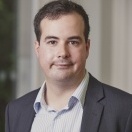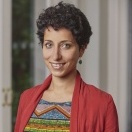Disease, pollution, and the refugee crisis are among the global challenges being tackled by PhD students on an innovative new scheme at Birmingham.
Funded by alumni and friends as part of the 10,000 Lives appeal, Global Challenges PhD Scholarships are addressing major issues worldwide. They are awarded to students who offer fresh thinking, new technologies, and improved understanding of the societies in which the challenges occur.
Professor Tim Softley, Pro Vice-Chancellor for Research and Knowledge Transfer, says: 'The scholarships will train the next generation of leading researchers to be equipped to tackle global challenges through high quality research and innovation.
'This research will truly make a difference to the peoples of the world, both in the current age and generations to come.'
The scholarships cover PhD fees and living expenses for three years, allowing students to focus on their projects without financial worries.
Hannah Briscoe, who is researching transnational childhoods and religious migration, says: 'As a mature student and someone with previous education costs, I'm very grateful that I can throw myself into this PhD without the distraction of how I’m going to fund each year.'
Below, Old Joe meets four other researchers on the scheme for a brief overview of their projects. If you would be interested in funding a scholarship, please contact Emily Henderson on e.g.henderson@bham.ac.uk or +44 (0)121 414 6879.
Finding a new TB vaccine
Student name: Dr Danai Papakonstantinou
Impact: 'TB is one of the biggest infectious disease killers on the planet. Hundreds of years after the first vaccine was developed, we still don't have effective immunisation and it doesn’t protect people across the globe. We're combining expertise from across the University and beyond to bring a different approach to finding a new vaccine.
'It's a very collaborative approach. I'm an infectious diseases specialist and I'll be working with a team of very well established scientists including researchers who analyse DNA data, clinicians and immunologists.'
Urban air pollution

Student name: Karn Vohra
Impact: 'My work involves trying to understand how urban air pollution is evolving over time, using satellite observations to monitor cities, particularly in the developing world. By building a tool to monitor air pollution, we can better understand the urban environment, and provide city planners and stakeholders with the information they need to develop action plans to improve air quality.
'This work excites me because we're trying to look for a solution to a problem of global concern. It's something that will have real life impact as air pollution is detrimental to both human health and food security.'
Improving access to surgery

Student name: Dr Dmitri Nepogodiev (MBChB Medicine, 2012)
Impact: 'Surgical conditions account for a third of the global disease burden, but 4.8 billion people worldwide lack access to affordable, timely, safe surgery. This has a big impact on patients and families, as delayed presentation to hospital is associated with increased complications and potentially death.
'To address these challenges, I am working with local surgeons in a range of low and middle income countries (LMICs) to identify potential sustainable solutions to improve access to surgery in their settings.
'My project is embedded in the University's recently established Unit on Global Surgery, which is setting up research hubs in low income countries. The hubs will support local surgeons to develop better patient care and provide the evidence that will encourage investment in surgical services. Initiatives include investigating methods for improving access to surgical care, preventing surgical wound infection, and investigating how cancer surgery may be improved across LMICs.'
Resilience of migrants

Student name: Dr Sara Alsaraf (MBBS MA)
Impact: 'My research uses an interdisciplinary approach to tackle the global challenge of reducing psychological and physical harm to migrants who experience sexual and gender based violence (SGBV). I will be meeting with people who have suffered such violence, so we can think about how to better protect them. I will focus on physical and mental health interventions as following traumatic experiences, migrants often remain vulnerable, even in countries of refuge. It's fantastic to be part of an international team of researchers and NGOs with an aim to alleviate the impact of SGBV and recommend policy at a global level.'